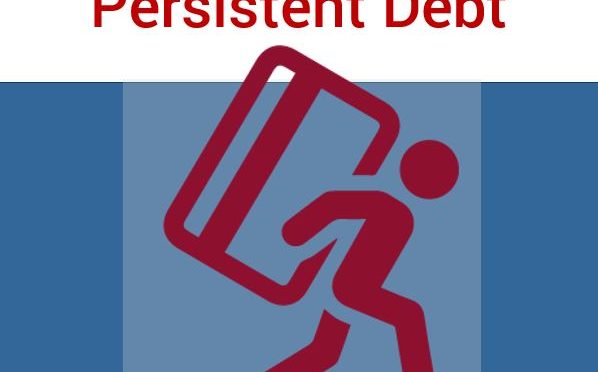Will FCA Proposals Fix the UK’s Persistent Debt Problem?
Blog: Enterprise Decision Management Blog

The UK’s Financial Conduct Authority desperately wants to help 3+ million borrowers get out of persistent debt — but will the fixes work the way they want them to?
The FCA estimates that credit card customers could save up to £1.3 billion a year if its proposals are enacted. The FCA’s proposed remedies “include firms, at designated timeframes, prompting customers to make faster repayments or proposing repayment plans, as well as intervening earlier if customers are struggling to repay,” according to the FCA. “It also proposes that where a customer cannot afford any of the options proposed to repay their balance more quickly, firms must take further steps to assist them to repay the balance in a reasonable period, for example by reducing, waiving or cancelling any interest or charges.”
The goal is laudable, but I can see a few challenges with the FCA’s proposals.
Faster Payments Are Unlikely
People who are living on the credit card and credit-stressed are unlikely to be in a position to pay faster. What does faster even mean?
Some people aren’t struggling, they are effectively managing as they use the cards as working capital for their sole trader business that has erratic but risk-free income patterns
And some will be the masters of credit facility management, meaning they actually get a wallet benefit from the way they manage across cards.
Reducing Card Use Is Tough
The banks can transfer card balance to a lower-cost term product but many customers may still need a card.
Aggressively reducing credit limits on customers who look like they might miss a payment has in the past accelerated customers into delinquency. Why? Because they live on the card and need that headroom — take it away and they then need to find another source of funding, such as payday lending, which due to its short term and very high interest will be a priority. The moment a creditor reduces the value of their own product in the customer’s wallet, that product becomes a low priority. Nobody will pay a card rather than feed the kids!
Cardholders know that making minimum payments on cards will rack up the interest costs, so if they’re paying minimum for that long they often have an embedded need for credit. Cutting them off isn’t the best answer.
Furthermore, if Bank A reduced my credit limit, will I be prevented from getting a second card from Bank B? As a proven revolver I look mighty profitable.
Cutting Costs Can Have Unfortunate Side Effects
Issuers can push down the cost of credit on the group so that they clear balances quicker, and that would be accompanied by prudent limit management. Typically, though, most organisations will effect limit management with a policy, and this policy will only affect a small proportion of the target cohort of customers. Not many issuers use credit line optimization, which will improve the accuracy of the limit increase amount for each unique customer.
Lowering the interest rate on revolving credit products is always an option, but it would not necessarily mean a customer would pay down their debt, they would just clear their open-to-buy level for a lower cost of credit. Typically this cohort of customers are the most profitable to the bank.
If interest rates are to be reduced, they would need to be reduced for everybody. Otherwise people might behave as a revolver for 18 months to get favourable terms. This was seen in the mortgage market, where the favourable treatment of in-arrears customers led to a rise in strategic defaulters.
New Regulations Could Make This All Harder
Under IFRS 9, customers who become 30+ days delinquent may (as it’s rebuttable) go to stage 2 and require the issuer to hold provisions against projected lifetime losses. That could have unfortunate consequences for the persistent debt cohort — for example, issuers choosing to stop doing business with them, forcing the financially stressed into a cash crunch and all that comes with being in a debt trap.
Don’t get me wrong: Everybody would endorse providing better support to the credit-stressed. I think there will need to be both crystal clarity on the who and how. What would be interesting is to see how the issuers research the typical purchase pattern of each cohort type in the revolver book, substantiate who is truly at risk and how the action / reaction is seen to help the target customers. Issuers are going to have to get very granular to avoid disadvantaging many very good revolving customers.
I suspect that more is going to be needed to help people manage the household budget. A lot of people see their credit card as their only hope for doing this. And many more utilise the card minimum payment for logical reasons. Addressing the problem of those who truly are debtors without choice is more challenging and a one-dimensional effort aimed at their cards alone may not be as helpful as hoped.
The post Will FCA Proposals Fix the UK’s Persistent Debt Problem? appeared first on FICO.
Leave a Comment
You must be logged in to post a comment.







